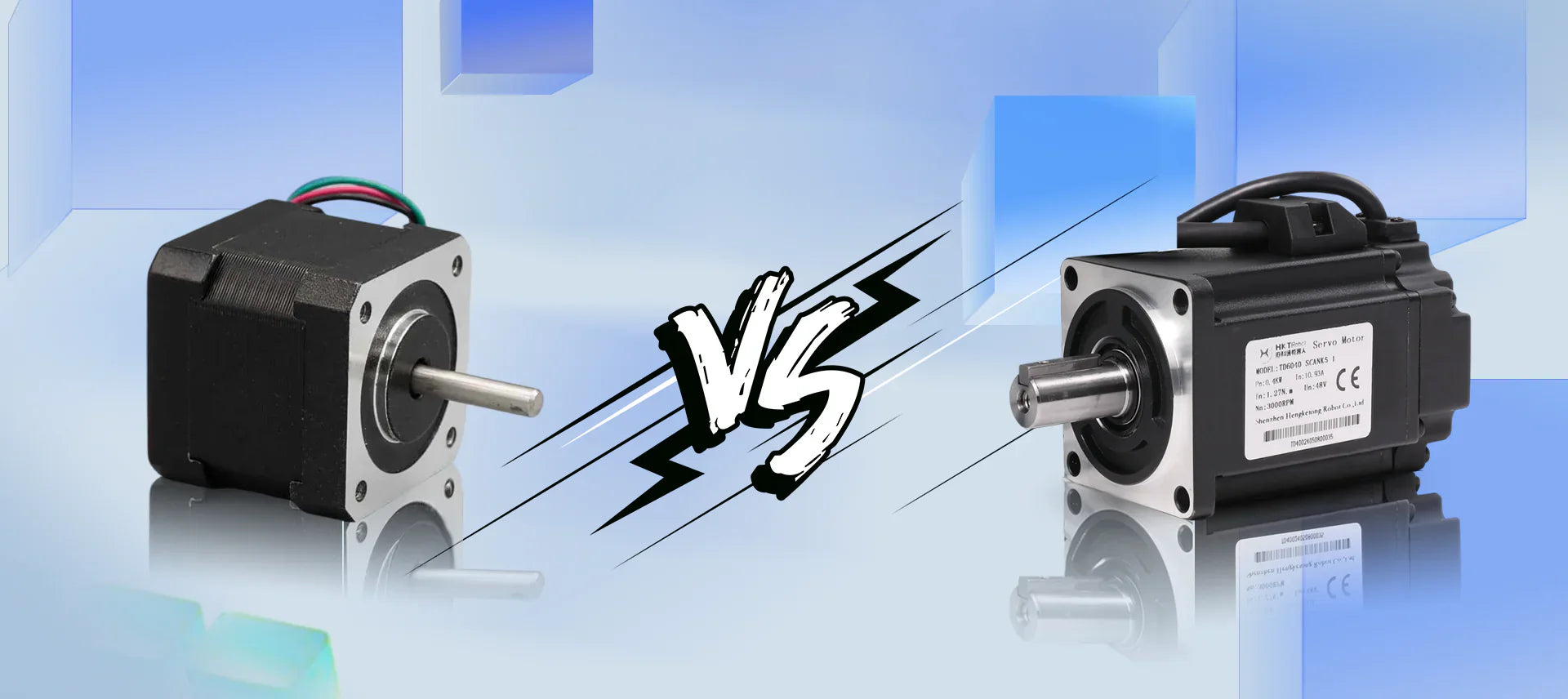1. Valor de los servosistemas en los AGV
La tecnología servo permite:
-
Control de precisión de bucle cerrado (posición/velocidad/par)
-
Respuesta dinámica rápida para una dirección y aceleración precisas
-
Alta densidad de par para un diseño de chasis compacto
-
Mayor tiempo de actividad operativa y menores costos de mantenimiento
2. Comparación de tecnologías de motores
(La tabla en inglés refleja la versión en chino; se omite aquí por razones de brevedad en la estructura)
Conclusión:
Los servomotores son la opción óptima para AGV logísticos, AMR de servicio pesado y sistemas de transporte.
3. Necesidades estructurales de los AGV
| Sistema | Requisito funcional | Enfoque en el rendimiento |
|---|---|---|
| Ruedas motrices | Tracción + Dirección | Alto par + aceleración rápida |
| Sistema de elevación | Manipulación de carga vertical y giratoria | Fuerte sujeción + densidad de potencia |
| Ruedas giratorias | Apoyando la estabilidad | Diseño compacto y robusto |
4. Fórmulas de dimensionamiento de servomotores
(Ecuaciones idénticas a la versión china)
➡ Recomendación de ingeniería: margen de seguridad ≥20%
5. Curva par-velocidad
-
Estabilidad del par nominal a baja velocidad
-
Alta eficiencia en el rango de velocidad media
-
Zona de limitación de potencia a velocidad extrema
Ideal para paradas y arranques frecuentes y control preciso a baja velocidad .
6. Escenarios de aplicación
-
AGV de almacén: carga útil de 300 a 1500 kg
-
Lanzaderas de cuatro vías
-
Robots móviles de elevación de alta resistencia
(Insertar diagramas/curvas técnicas en el sitio web)
7. Ventajas de nuestros servoaccionamientos
| Ventajas clave | Descripción |
|---|---|
| Control de alto rendimiento | Rechazo de perturbaciones y control de pendientes |
| Compatibilidad con redes inteligentes | CANopen / EtherCAT / Modbus |
| Diseño compacto integrado | Servo + freno + caja de cambios |
| Alta confiabilidad | Límite electrónico + protección contra sobrecarga |
| Personalización completa | Compatible con OEM/ODM |
8. Estrategia de selección
-
Mayor margen de par para pendientes y cargas pesadas
-
Elija EtherCAT para AGV de movimiento crítico
-
Freno magnético para sujeción de seguridad
-
Caja de cambios planetaria compacta para altura de chasis limitada
✅Conclusión
Un sistema de servoaccionamiento bien diseñado mejora directamente:
-
Precisión de navegación
-
Eficiencia del tráfico
-
Ahorro de costes durante el ciclo de vida

Compartir:
Guía de cálculo de potencia del motor: Por qué P=F×V es importante en el dimensionamiento de servomotores y el diseño de movimiento de AGV
Tecnologías clave de simulación de trayectorias de AGV: control inteligente de rutas en la logística de fabricación de automóviles